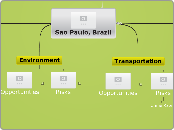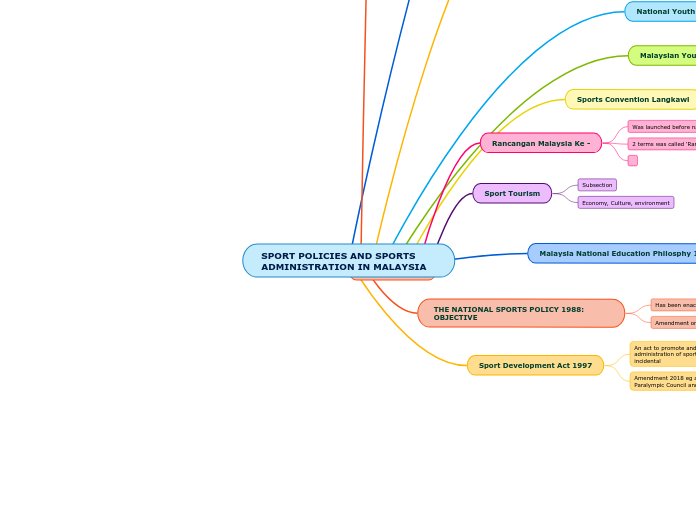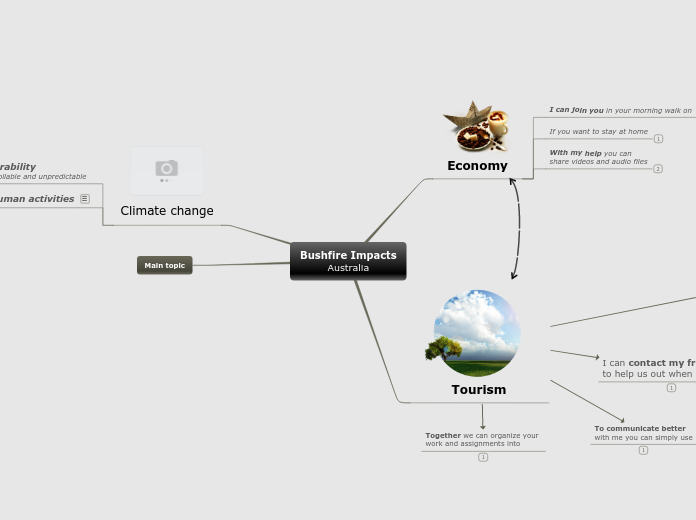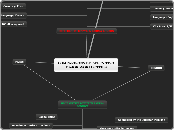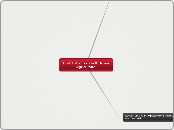Map
Foreign Policy
4.83 4.98 5.11 4.33 4.67 3.75 6.11
Hofstede
Transparency
Bribery
Sao Paulo, Brazil
General Information on Sao Paulo
Brazil is a very large and heavily populated country, and Sao Paulo is the major industrial and commercial region of the country.
Languages:
Portuguese (official and most widely spoken language)
Has nearly 41 million people; this is a third more than all of Canada.
GDP in 2008: 546.96 million USD
13,335 USD per capita
Agriculture: 5.8%
Industry: 26.9%
Services: 67.3%
Exports
transport equipment, iron ore, soybeans, footwear, coffee, autos
Imports
machinery, electrical and transport equipment, chemical products, oil, automotive parts, electronics
Exchange rate: reals (BRL) per US dollar 1.602
Unemployment rate 6% (2011)
Services
1. Large number of existing hotels, Opening a new hotel will be likely be unprofitable
2. Tourism is a large part of the economy already - there is no guarantee of success.
3. Locals may be wary of foreign influence in service industry due to their preferences. (whitening)
4.Technology is not as available and as advanced as in more developed cities. There is not very much competition so prices are inflated and there is a monoply on land lines. Phone theft if a large black market business.
1. Support in tourism (H&R, Restaurants, Tour Guides, Tour Information, Gift Shops etc.)
Anything to support travelers in the region with their stay and experience.
2. Support in locals (Social services, Food banks, Rehabilation centers, education, literacy, physical activity, financial intelligence.)
Transportation
1. There may not be much interest in transit as it is not-well known. Brazil is known to have a high uncertainty avoidance. Compare 76 for Brazil to 48 for Canada.
2. Crime rates are very high; therefore it may be risky to use public transit.
3. Pricing is a concern for commuter costs; it may not be profitable with rates that people will accept.
Crime Rate
second-largest consumer of cocaine in the world; illicit producer of cannabis; trace amounts of coca cultivation in the Amazon region, used for domestic consumption
upsurge in drug-related violence and weapons smuggling;
There is a current project to convert some roadways to rail; this is a huge opportunity!
1. The current transportation system is lacking.
2. This presents an opportunity for companies, such as Bombardier, to help develop their infrastructure.
3. The workforce will be more productive with a better transit system. This makes a transportation opportunity even better.
4. Lack of competition presents an opportunity.
Environment
1.The city's rapid growth did not take into consideration the natural limitations and conditions; it lacked the necessary planning and investments on infrastructure, environmental sanitation, social housing, and public transportation, resulting in serious environmental problems.
2.Today, 48% of the territory of São Paulo is significantly lacking in plant cover of any type.
21% of the city is covered by dense forests in various stages of ecological succession, under severe threat from the unrestrained occupation of both low-income housing and luxury condominiums.
3.As a result of the loss of natural habitats and proximity of the urban areas, some animals become the victims of being run over, electrocuted, fires, acts of vandalism, habitat pollutionetc.
1. Eco-friendly business- paperless or brownfields
2. Providing eco-friendly conversion buildings or projects
3. Creating parks, small grass lands within the city.
(brings in agriculture, landscaping, artistic instalments)
4. 3 R program intensively
Manufacturing
Risks
1. Relatively high median income (approx. 13,000CAD) implies a higher total manufacturing cost than other potential investment areas.
2. Issues with transportation infrastructure in the region make the location of any potential manufacturing site extremely important; a poorly chosen site could lead to significant difficulty.
Opportunities
1. Strong industrial sector. Compare 46% of their GDP to 29% for Canada.
2. This means that their expertise can be leveraged.
3. With a lower median income than Canada, there is opportunity for manufacturing at a lower cost.
